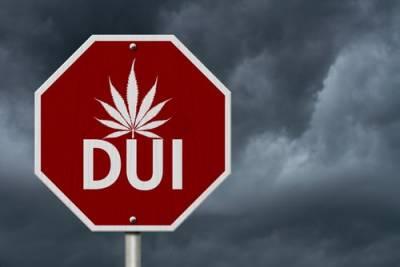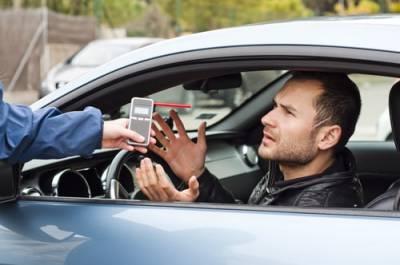Recent Blog Posts
What Is the Difference Between Assault and Battery in Illinois?
 Even though most people never intend to run afoul of the law, there are some situations where a person may be accused of harming someone else, and these may lead to criminal charges. In some cases, an argument or disagreement may get out of control, causing a person to feel threatened, or a physical fight may break out, resulting in injuries. These situations could lead to assault and/or battery charges. While these charges are often used together, they are two separate offenses, and it is important to understand the distinctions between them. Depending on the circumstances of a case, assault or battery may be charged as a misdemeanor, or aggravating factors may lead to felony charges.
Even though most people never intend to run afoul of the law, there are some situations where a person may be accused of harming someone else, and these may lead to criminal charges. In some cases, an argument or disagreement may get out of control, causing a person to feel threatened, or a physical fight may break out, resulting in injuries. These situations could lead to assault and/or battery charges. While these charges are often used together, they are two separate offenses, and it is important to understand the distinctions between them. Depending on the circumstances of a case, assault or battery may be charged as a misdemeanor, or aggravating factors may lead to felony charges.
Assault Charges
A person may be charged with assault if they knowingly take actions that would reasonably cause someone else to fear that they will suffer bodily harm or to believe that the person will make physical contact with them in an offensive or insulting manner. Since assault involves the threat or anticipation of action, a person may be charged with this offense if they verbally threaten to harm someone else, pull back their fist in preparation to punch someone, or brandish a weapon in a threatening manner.
Understanding Construction Zone Traffic Violations in Illinois
 There are multiple ways that a driver may be charged with a traffic violation. In many cases, traffic tickets will result in fines, but a driver may also see their insurance rates increase, and multiple violations within one year could even result in the suspension or revocation of their driver’s license. Traffic violations that take place in construction zones can result in more serious penalties. Drivers will need to be sure to understand the laws that apply in these situations and their options for defending against these types of violations.
There are multiple ways that a driver may be charged with a traffic violation. In many cases, traffic tickets will result in fines, but a driver may also see their insurance rates increase, and multiple violations within one year could even result in the suspension or revocation of their driver’s license. Traffic violations that take place in construction zones can result in more serious penalties. Drivers will need to be sure to understand the laws that apply in these situations and their options for defending against these types of violations.
Types of Construction Zone Violations
Usually, when road construction is being performed, reduced speed limits will apply for drivers who are traveling through the work zone. These limits will remain in effect whether work is being performed in the construction area or not. Automated photo speed enforcement may be used in some construction zones, although it can only be active at times when workers are present.
Updated: Illinois Penalties for Juvenile Possession of Drugs
 UPDATE: As of January 1, 2020, Illinois laws regarding marijuana have changed. Adults over the age of 21 are allowed to possess and use up to 30 grams of cannabis for recreational purposes, and adults and minors may also possess and use marijuana for medicinal purposes if they have a debilitating medical condition and are authorized to participate in the Medical Cannabis Patient Program. Along with these changes to the law, the penalties that minors may face for possession of marijuana have been updated.
UPDATE: As of January 1, 2020, Illinois laws regarding marijuana have changed. Adults over the age of 21 are allowed to possess and use up to 30 grams of cannabis for recreational purposes, and adults and minors may also possess and use marijuana for medicinal purposes if they have a debilitating medical condition and are authorized to participate in the Medical Cannabis Patient Program. Along with these changes to the law, the penalties that minors may face for possession of marijuana have been updated.
Minors under the age of 21 are prohibited from possessing or using marijuana, with the exception of those who are authorized to use medical cannabis. However, possession of marijuana by a minor is no longer a criminal offense, but is instead treated as a civil law violation. This type of violation may be punished by a fine of $100-200. If a minor is found to be in possession of marijuana in a motor vehicle, their driver's license may be suspended or revoked.
When Can a Person Be Charged With Manslaughter in Illinois?
 Of all the different types of criminal charges that a person can face, some of the most serious involve the accusation that a person caused someone else’s death. While intentionally killing someone else can lead to charges of first-degree or second-degree murder, a person may also face felony charges if they are accused of accidentally causing someone’s death. Depending on the circumstances, the offenses of involuntary manslaughter or reckless homicide may apply. Those who are facing these types of charges will want to understand how Illinois law applies to their situation and the potential penalties they could face if they are convicted.
Of all the different types of criminal charges that a person can face, some of the most serious involve the accusation that a person caused someone else’s death. While intentionally killing someone else can lead to charges of first-degree or second-degree murder, a person may also face felony charges if they are accused of accidentally causing someone’s death. Depending on the circumstances, the offenses of involuntary manslaughter or reckless homicide may apply. Those who are facing these types of charges will want to understand how Illinois law applies to their situation and the potential penalties they could face if they are convicted.
Involuntary Manslaughter and Reckless Homicide Charges
A person may be charged with involuntary manslaughter if they unintentionally kill someone else without a lawful justification. Typically, involuntary manslaughter charges will apply if a person acted recklessly in a way that was likely to cause great bodily harm or death to someone else. In most cases, involuntary manslaughter is charged as a Class 3 felony, and a conviction can result in a prison sentence of two to five years. A person who is convicted of a felony may also be required to pay a fine of up to $25,000.
What Are the Penalties for Manufacturing or Selling Drugs in Illinois?
 There are multiple different types of illegal drugs and controlled substances that may be available to people in the United States. These substances are strictly regulated, and possession of illegal drugs can result in serious criminal charges. However, a person can be charged with an even more serious offense if they are accused of manufacturing drugs or selling controlled substances. These charges may apply if a person allegedly sold or delivered drugs to someone else, but possession of large amounts of drugs may also be seen as an indication that a person intends to sell or distribute these substances. Those who are facing these types of drug charges should be sure to understand how Illinois law applies to their situation, and by working with a criminal defense attorney, they can determine the best strategy for defense.
There are multiple different types of illegal drugs and controlled substances that may be available to people in the United States. These substances are strictly regulated, and possession of illegal drugs can result in serious criminal charges. However, a person can be charged with an even more serious offense if they are accused of manufacturing drugs or selling controlled substances. These charges may apply if a person allegedly sold or delivered drugs to someone else, but possession of large amounts of drugs may also be seen as an indication that a person intends to sell or distribute these substances. Those who are facing these types of drug charges should be sure to understand how Illinois law applies to their situation, and by working with a criminal defense attorney, they can determine the best strategy for defense.
Can I Face DUI Charges When Using Marijuana in Illinois?
 Over the past several years, marijuana use has become more and more accepted throughout the United States, and multiple states, including Illinois, have made this drug legal for people to buy and use for both medical and recreational purposes. As of January 1, 2020, Illinois residents who are over the age of 21 can possess up to 30 grams of cannabis plants, 5 grams of concentrated cannabis, or 500 milligrams of products containing THC, and visitors to the state can possess half of these amounts. However, while marijuana users may no longer face drug possession charges, they may still be charged with DUI if they are found to be operating a vehicle while under the influence of this drug.
Over the past several years, marijuana use has become more and more accepted throughout the United States, and multiple states, including Illinois, have made this drug legal for people to buy and use for both medical and recreational purposes. As of January 1, 2020, Illinois residents who are over the age of 21 can possess up to 30 grams of cannabis plants, 5 grams of concentrated cannabis, or 500 milligrams of products containing THC, and visitors to the state can possess half of these amounts. However, while marijuana users may no longer face drug possession charges, they may still be charged with DUI if they are found to be operating a vehicle while under the influence of this drug.
Marijuana DUI and Related Charges
In addition to prohibiting driving with a blood alcohol content (BAC) of .08% or more, Illinois law also includes a legal limit that defines intoxication by marijuana. A driver who is arrested on suspicion of DUI may be asked to take a chemical test that measures the level of THC, the chemical that causes marijuana users to experience a “high,” that is in their system. If a driver is asked to provide a blood sample, the legal limit is five nanograms of THC per milliliter. For other bodily fluids, such as a urine sample or saliva collected through a cheek swab, the legal limit is 10 nanograms of THC per milliliter. A driver who refuses to submit to chemical testing will face an automatic suspension of their driver’s license for at least one year.
What Are the Penalties for Motor Vehicle Theft in Illinois?
 While stealing a car or other vehicle that belongs to someone else is a crime, there are a variety of other offenses that may be considered motor vehicle theft. Depending on the nature of a specific offense and the value of a vehicle that was allegedly stolen, a person could be charged with a misdemeanor or felony. People in Illinois who are facing these types of charges will want to understand how the law applies to their situation, and by working with an experienced criminal defense lawyer, they can determine their best options for achieving a positive outcome to their case.
While stealing a car or other vehicle that belongs to someone else is a crime, there are a variety of other offenses that may be considered motor vehicle theft. Depending on the nature of a specific offense and the value of a vehicle that was allegedly stolen, a person could be charged with a misdemeanor or felony. People in Illinois who are facing these types of charges will want to understand how the law applies to their situation, and by working with an experienced criminal defense lawyer, they can determine their best options for achieving a positive outcome to their case.
Different Types of Motor Vehicle Theft Charges
Motor vehicle theft may involve any situation in which a person possesses a vehicle owned by someone else when they are not entitled to do so. These charges may apply if a person takes, conceals, or sells another person’s vehicle or if a person receives or transfers ownership of a vehicle that they know to be stolen. Theft of a vehicle’s “essential parts,” including its frame, doors, engine, seats, or radio, may be treated similarly to the theft of a vehicle as a whole.
When Can Traffic Violations Lead to a Driver’s License Suspension?
 Most people have received a traffic ticket at some point in their lives, and in many cases, drivers are cited for minor traffic violations, such as speeding, running a red light, or failing to use turn signals. After receiving a traffic ticket, a driver will usually be required to pay a fine, and their insurance rates may increase. However, drivers should also be aware that multiple violations or serious traffic infractions could result in the suspension of their driver’s license. In these cases, drivers will want to work with an attorney and determine whether they can contest traffic violations and avoid the loss of their driving privileges.
Most people have received a traffic ticket at some point in their lives, and in many cases, drivers are cited for minor traffic violations, such as speeding, running a red light, or failing to use turn signals. After receiving a traffic ticket, a driver will usually be required to pay a fine, and their insurance rates may increase. However, drivers should also be aware that multiple violations or serious traffic infractions could result in the suspension of their driver’s license. In these cases, drivers will want to work with an attorney and determine whether they can contest traffic violations and avoid the loss of their driving privileges.
License Suspensions Under the Illinois Point System
When a driver is convicted of a traffic violation, a certain number of points will be added to their Illinois driving record. The number of points is based on the severity of the offense. Minor violations will usually involve between 5 and 20 points. For example, a speeding ticket where a driver was traveling 10 miles per hour or less over the speed limit is worth five points, and disregarding a traffic light or signal is worth 20 points. More serious offenses may involve between 25 and 55 points. Examples of these types of violations include aggravated speeding at least 26 miles per hour over the speed limit, which is worth 50 points, or reckless driving, which is worth 55 points.
New Law Will Eliminate Cash Bail in Illinois by 2023
 In recent years, advocates for criminal justice reform have fought against bail requirements for criminal defendants. When a person is charged with a crime, they will usually be required to pay an amount of bail set by a judge before they can be released from police custody. Advocates have argued that this places an unfair burden on lower-income defendants, and the practice has led to many people being required to remain in prison while awaiting trial if they are unable to raise the funds to secure a release. Recently, Illinois passed a law that will eliminate cash bail, along with other changes meant to protect the rights of defendants and address police accountability.
In recent years, advocates for criminal justice reform have fought against bail requirements for criminal defendants. When a person is charged with a crime, they will usually be required to pay an amount of bail set by a judge before they can be released from police custody. Advocates have argued that this places an unfair burden on lower-income defendants, and the practice has led to many people being required to remain in prison while awaiting trial if they are unable to raise the funds to secure a release. Recently, Illinois passed a law that will eliminate cash bail, along with other changes meant to protect the rights of defendants and address police accountability.
Pretrial Detention and Release in Illinois
The new law, which was passed on January 13, 2021, and is currently awaiting Governor J.B. Pritzker’s signature, will make all defendants eligible for pretrial release without the requirement to post monetary bail. However, there are a number of exceptions that may prevent a person from being released. These include situations in which a person is charged with a violent crime, including:
Can I Refuse to Take a Breathalyzer Test When Pulled Over for DUI?
 Any type of traffic stop can be a nerve-wracking experience, since even low-level traffic violations can result in fines, penalties to a person’s license, increased insurance rates, and other consequences. However, situations where a person may be suspected of driving under the influence of alcohol or drugs can be even more stressful, since a conviction on DUI charges can lead to driver’s license suspension or revocation, potential time in prison, and a permanent criminal record. In these cases, drivers will want to understand their rights regarding breathalyzer testing, including the potential consequences of refusing a blood alcohol test.
Any type of traffic stop can be a nerve-wracking experience, since even low-level traffic violations can result in fines, penalties to a person’s license, increased insurance rates, and other consequences. However, situations where a person may be suspected of driving under the influence of alcohol or drugs can be even more stressful, since a conviction on DUI charges can lead to driver’s license suspension or revocation, potential time in prison, and a permanent criminal record. In these cases, drivers will want to understand their rights regarding breathalyzer testing, including the potential consequences of refusing a blood alcohol test.
BAC Testing and Implied Consent
Anyone who drives on public roads in Illinois is presumed to have given consent to chemical testing to determine their blood alcohol content (BAC) or whether they have other intoxicating drugs in their system if they are arrested on suspicion of DUI. However, it is important to understand what types of tests this implied consent applies to.







